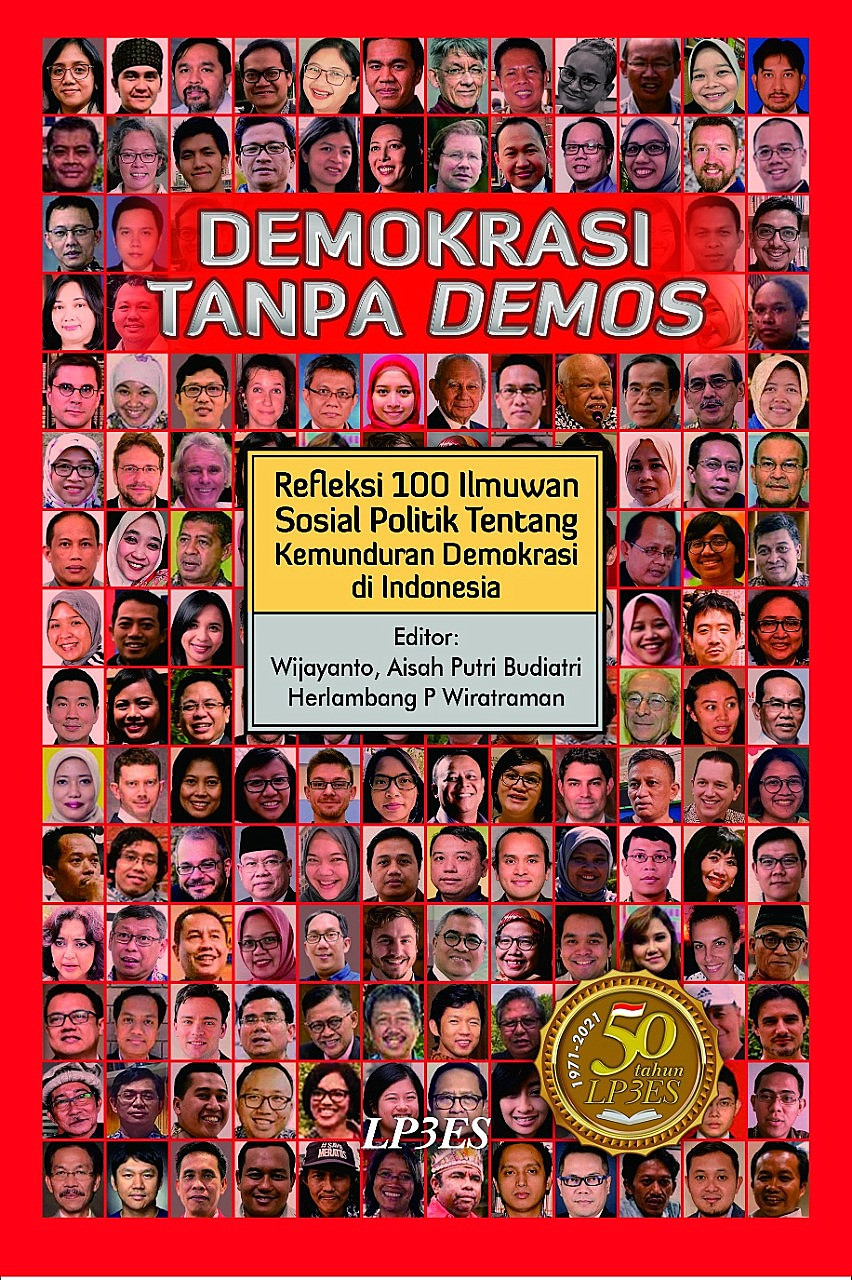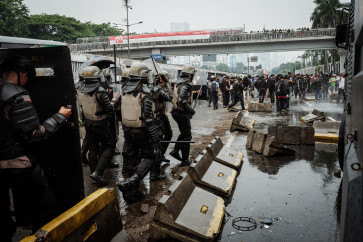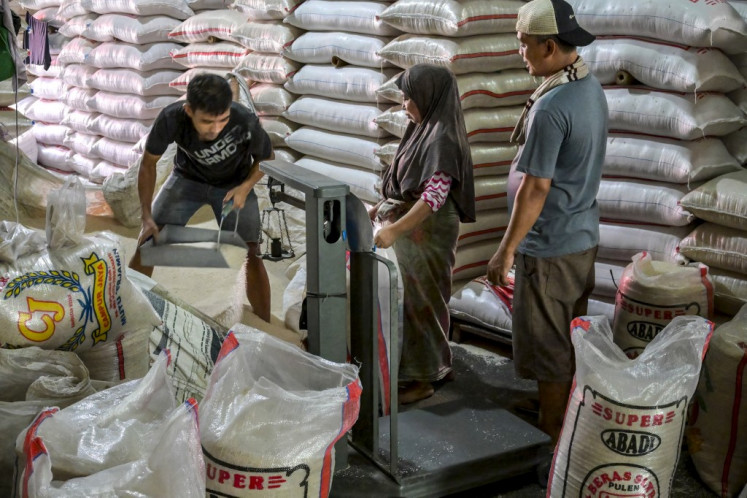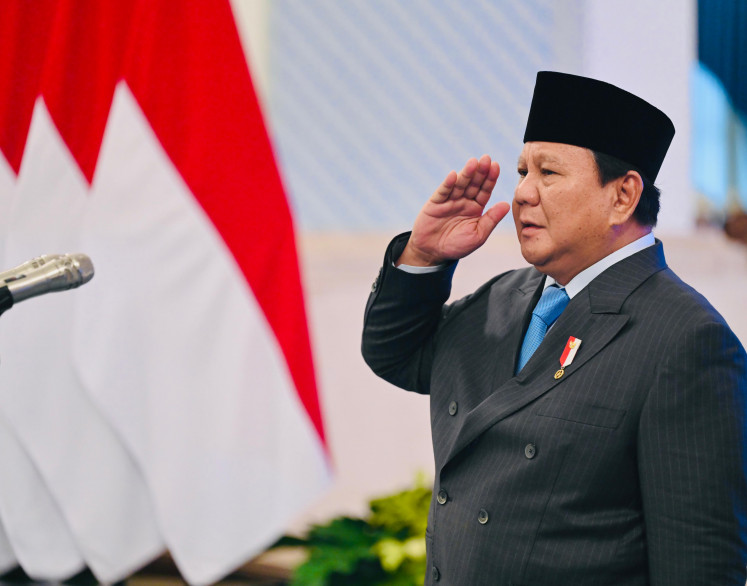Popular Reads
Top Results
Can't find what you're looking for?
View all search resultsPopular Reads
Top Results
Can't find what you're looking for?
View all search resultsDemocracy without ‘demos’: Indonesia’s democratic decline
Whoever and whatever is done in the management of government, democracy must be based on the interests of the people, nothing else.
Change text size
Gift Premium Articles
to Anyone
I
n observance of its 50th anniversary, which falls on Thursday, the Institute for Research, Education and Information for Social and Economic Affairs (LP3ES) has published a book titled Democracy Without Demos: Reflections of 100 Socio-Political Scientists on the Decline of Democracy in Indonesia.
The initial idea to publish this book came at the end of 2020 when we initiated the need to invite scientists from all over the world to write joint reflections of the state of democracy in Indonesia. Then, we asked the scientists to speak and present their writings in a weekly discussion forum, which was later named the Forum of 100 Scientists.
As the name suggests, it intends to bring no less than 100 socio-political scientists around the world to reflect with LP3ES. In the forum, three to four socio-political scientists from various countries talk at LP3ES webinars on various themes every week.
During the seven months between late October 2020 and early June, a total of 28 webinars took place. In other words, an average of four webinars every month for seven months.
A total of 135 scientists (92 male and 43 female) joined our program by speaking in webinars, submitting writings or speaking and submitting writings at the same time. Of the pool of scientists, 77 (58 men and 19 women) wrote critical reflections that made up the book.
From the various reviews and explorations of the authors in this book, as well as from the dozens of webinars that we held, it appears that there is a shared concern and findings among them: a serious problem of the democratic decline in Indonesia.
In this regard, a democratic decline can be understood as a process in which democratically elected actors gradually turn their backs on democratic values and institutions. This is unlike the old days, when a military coup hijacked democracy, resulting in authoritarianism.
The question then is why the democratic decline occurred. Daron Acemoglu and James A Robison (2019) in their monumental work The Narrow Corridor: States, Societies and the Fate of Liberty emphasize the need to maintain a balance of power between the state and civil society in order to maintain the narrow path of civil liberties.
According to them, if the state is too strong, it will turn into a leviathan that will kill civil liberties and democracy. On the other hand, if civil society is too strong and the state is too weak, what will happen is social chaos that occurs because of the absence of order.
Inspired by Acemoglu and Robison, we see that one of the main causes of the democratic decline in Indonesia is the oligarchic power that quickly consolidated after the 1998 Reform Era and especially since 2019, on the one hand, and the haste of civil society to consolidate and compete with them on the other hand.
In this regard, we define oligarchy as a system of power relations that allows the accumulation of wealth and authority in the hands of a handful of elites along with a set of mechanisms to maintain it (Robison and Hadiz, 2013).
The result is various forms of policies that serve the political economic interest of the elite but leave public interest behind. This is reflected in various writings in this book: the poor handling of the pandemic, environmental destruction, rampant corruption at the national and local levels, the weakening of anticorruption institutions, land grabbing from farmers, cooptation of academic freedom, shrinking public sphere and freedom of speech, poor crisis communication and various other issues.
This is where we chose Democracy Without Demos as the title of the book. We interpret this as a situation in which democracy does appear to be procedurally implemented but in substance, it is not implemented for the benefit of the people as it should be. Instead, it is only used as a tool for a group of oligarchic elites to gain power and resources.
Democracy has betrayed the origin of its embedded meaning, namely Greek-style democracy, which comes from two words: demos and kratos. Demos means people and kratos means government. This Greek-style democracy is simply defined as a form of government that originates from the people and is based on the interests of the people. In this context, Democracy Without Demos is certainly an anomaly or even contradictory.
Democracy Without Demos is certainly not what is expected to be the end of the story of democracy in Indonesia’s post-Reform Era. Therefore, efforts to resolve the complexities of problems that challenge and hinder democracy need to be carried out immediately. In detail, many of the authors in this book elaborate on the possible solutions, starting from reinterpreting the concept of Indonesian democracy, engineering the electoral system and political parties and improving a series of legal regulations and governance, to reforming democratic institutions and strengthening gender equality, among other ways.
In short, there are many types of medication to remedy our democracy that can be adapted to the different symptoms that accompany it.
However, we note one important thing as the key to bringing back demonstrations as a whole in democracy in Indonesia, namely to restore the people and their interests as the epicenter of democracy. Whoever and whatever is done in the management of government, democracy must be based on the interests of the people, nothing else.
In our opinion, the real step that can be taken now to make it happen is to build synergies among civil society groups to jointly build large and solid alliances to balance the oligarchy. Just as every good practice must be based on theory and mature reflection, we believe that the publication of this book can be one of the ways to do that.
Finally, we believe that the writers came with one simple and sincere intention: to contribute to the advancement of democracy in Indonesia. And perhaps they also believe that it is time for a new generation of Indonesians that can answer the demands of the times to be born.
A 20-year cycle starting with the birth of the 1928 Youth Pledge, the 1945 Proclamation of Independence, the 1965 student movement, the 1998 Reform Era and who knows: 2021! A generation that is more cosmopolitan, consisting of Indonesians and non-Indonesians, who share the fate of witnessing a pandemic that does not occur once every 100 years, whose minds are concerned about the decline of Indonesia, and together, they reflect in this book!
May this intention reach the sky and then return to the Earth as raindrops that become a sign: a new generation will soon be born!
***
The writer is director of the Center for Media and Democracy and LP3ES, lecturer of media and democracy at Diponegoro University and chief editor of the book Democracy Without Demos: Reflections of 11 Socio-Political Scientists on the Decline of Democracy in Indonesia.










